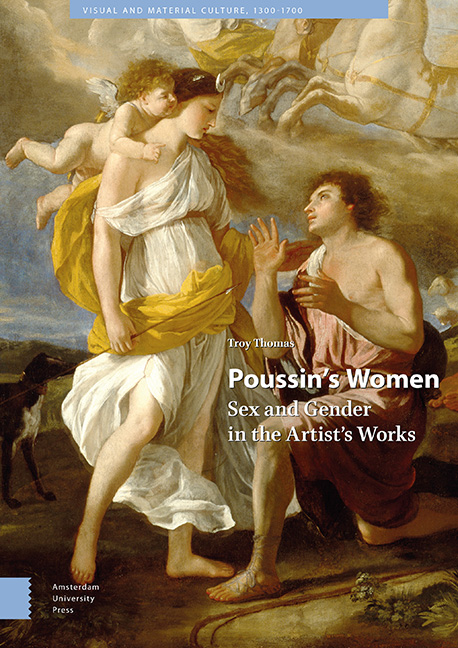Book contents
- Frontmatter
- Contents
- List of Illustrations
- Acknowledgments
- Part I – Violence and Virtue in Poussin’s Representations of Women
- Part II – Poussin’s Women—Cultural and Social Frames
- Part III – Paintings and Drawings
- 1 Predators
- 2 The Lustful—Triumphant, Impulsive, Spying, Conquered
- 3 Lovers—Genuine, Controlling, Unrequited, Jealous
- 4 Killers, Transgressors
- 5 Victims I—Killed, Assaulted
- 6 Victims II—Voiceless, Deceived
- 7 Heroines, Great Ladies
- Conclusion
- Bibliography
- Index
6 - Victims II—Voiceless, Deceived
Published online by Cambridge University Press: 20 November 2020
- Frontmatter
- Contents
- List of Illustrations
- Acknowledgments
- Part I – Violence and Virtue in Poussin’s Representations of Women
- Part II – Poussin’s Women—Cultural and Social Frames
- Part III – Paintings and Drawings
- 1 Predators
- 2 The Lustful—Triumphant, Impulsive, Spying, Conquered
- 3 Lovers—Genuine, Controlling, Unrequited, Jealous
- 4 Killers, Transgressors
- 5 Victims I—Killed, Assaulted
- 6 Victims II—Voiceless, Deceived
- 7 Heroines, Great Ladies
- Conclusion
- Bibliography
- Index
Summary
Abstract
Further categories of victimhood appear in Poussin's works, including the voiceless and the deceived, making examples of this broad theme of female victims (including those discussed in Chapter 5) the most common in his oeuvre. In the present chapter, all of the victims are female. The voiceless are found in Echo and Narcissus, Hercules and Deianeira, the Continence of Scipio, and the Testament of Eudamidas. Deceived women appear in the Birth of Bacchus, Achilles Among the Daughters of Lycomedes, and the Judgment of Solomon.
Keywords: Victims, Voicelessness, Deception, Jealousy, Power
Further categories of victimhood appear in Poussin's works, including the voiceless and the deceived, making examples of this broad theme of female victims (including those discussed in Chapter 5) the most common in his oeuvre. In the present chapter, all of the victims are female. The voiceless include Echo in Echo and Narcissus, whose human form fades into a rock while she longingly tries to converse with the one she loves. The young woman in the Continence of Scipio is likewise without a voice, since she is entirely passive, her fate having been determined by Scipio, her betrothed, and her father. The voiceless grandmother and daughter in the Testament of Eudamidas are innocents whose fate hangs upon the mercy of the male heirs named in the will of Eudamidas. Poussin's drawing of Hercules and Deianeira (c. 1637, Royal Library, Windsor Castle, Fig. 6.2), not included in detailed discussion in this chapter, also shows a voiceless woman, Deianeira, who has no say in who becomes her husband, as the outcome is determined by men, Hercules and Achelous, who fight each other to win her, and her father, King Oeneus, who agrees that the winner shall marry his daughter. Turning to women deceived, while she is not shown in the Birth of Bacchus, Semele, the mother of Bacchus, fell victim to Juno's deception when she was sent to Jove to be destroyed. Also deceived were the daughters in Achilles Among the Daughters of Lycomedes, who were led to believe that Achilles was a woman. The real mother in the Judgment of Solomon was deceived by the false one, who claimed the child of the former as her own.
- Type
- Chapter
- Information
- Poussin's WomenSex and Gender in the Artist's Works, pp. 271 - 300Publisher: Amsterdam University PressPrint publication year: 2020



